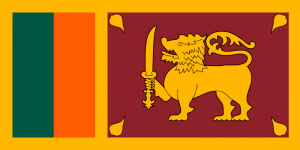 After 26 years of civil war between the Sri Lankan government and separatist Tamil Tiger insurgents in the north, Sri Lanka has become one of the fastest growing economies in the world and a growing outsourcing destination but so far, the Sri Lanka recruitment market has remained a net exporter of labor with few returnees coming back for jobs at home.
After 26 years of civil war between the Sri Lankan government and separatist Tamil Tiger insurgents in the north, Sri Lanka has become one of the fastest growing economies in the world and a growing outsourcing destination but so far, the Sri Lanka recruitment market has remained a net exporter of labor with few returnees coming back for jobs at home.
The Sri Lanka Diaspora and Sri Lankan Returnees
The Sri Lanka Diaspora is estimated to number 3 million in all with almost 2 million being migrant workers. And while its estimated that as many as 90% of Sri Lankan migrant workers abroad reside in the Middle East, so-called “Ceylonese” and Ceylonese Tamils in particular constitute small but important and upwardly mobile minorities in both Singapore and Malaysia where they had made up an overwhelming majority of the civil servant force prior to independence. In fact, Malaysian billionaire Ananda Krishnan, who is the second wealthiest man in Southeast Asia, is of Sri Lankan Tamil origins.
Large populations of Sri Lankans can also be found in the UK and to a much lesser extent in the United States, Australia, Canada, France and other European countries. However and in the past, Sri Lankans have had a very low rate of returning to Sri Lanka for job opportunities.
The Sri Lanka Recruitment Market
Major industries in Sri Lanka include tea cultivation and production, tourism, apparel and textile manufacturing. Sri Lanka is also becoming a major outsourcing destination with at least 50,000 workers employed in the sector that has a particular focus on accounting as the country has an estimated 10,000 certified accountants with another 30,000 students enrolled in accounting programs.
Moreover, Sri Lankan accountants are doing more than just payroll and bookkeeping with some of the outsourced work including stock research for investment banks, derivatives pricing and risk management for money managers and hedge funds and underwriting for insurance companies. Sri Lankan accountants can also be found in high level accounting related positions around the world.
Otherwise, Sri Lanka tends to be a labor exporter with the Sri Lanka Bureau of Foreign Employment (SLBFE) in charge of looking after the welfare aspects of country’s large migrant work force and their families.
Working in Sri Lanka
Foreign expatriates seeking work in Sri Lanka should consult the Sri Lanka Department of Immigration and Emigration or their nearest Sri Lanka embassy to find out the most current procedures for obtaining a residence visa in order to work in the country. It should also be noted that starting at the beginning of 2012, all holiday and business travelers to Sri Lanka must obtain an Electronic Travel Authorization (ETA) prior to entering the country.
As for Sri Lanka taxes, residents are taxed on worldwide income while nonresidents are taxed only on Sri Lankan-source income. Sri Lanka tax rates are also progressive and range from 5% to 35%. For further and more updated information about Sri Lanka tax rates or Sri Lankan taxes in general, visit taxrates.cc, KPMG’s Taxation of International Executives page for Sri Lanka or the Sri Lanka Inland Revenue department.
Finally and as a developing country, foreigners and returnees alike working in Sri Lanka will need to have international health insurance that also covers medical evacuation (e.g. to Thailand or Singapore) in the event of a serious illness or accident.
Sri Lanka Recruitment and Jobs Resources
For additional Sri Lanka recruitment resources, check out the Sri Lanka tagged posts from our Brain Drain to Brain Gain blog as well as our Sri Lanka jobs page.
